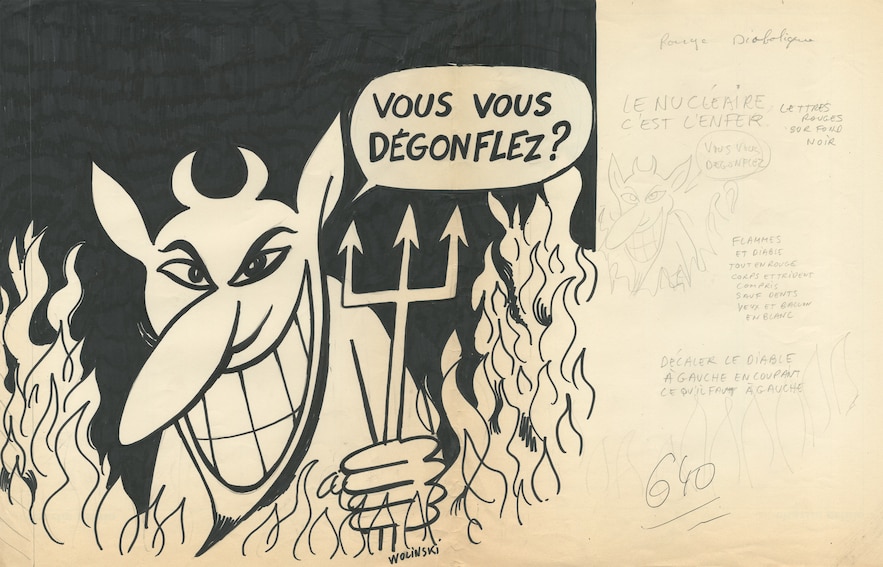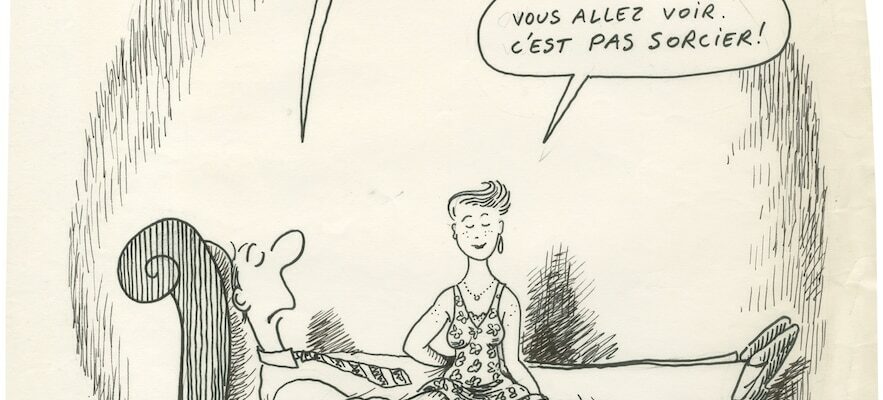Last June, he would have turned 90, a year he will never reach. If the oldest victim of the attack on Charlie Hebdo of January 7, 2015 bowed out too early, he leaves countless drawings that tell as much about him as about the world, disconcerting, that he scrutinized relentlessly, between laughter and desolation. “The comedian is rarely a bastard. He is a man without illusions”, hammered Georges Wolinski with his inseparable felt among other sallies peppering his fifty-year career.
From the de Gaulle era to the Hollande years, he mocks the upheavals of French politics and the evolution of morals. The condition of women, in particular, tickles him when, in real life, he mobilizes very early for the right to abortion and equal pay, while on paper he gleefully dons the clothes of the “dirty phallocrat”. It is the whole paradox of the guy, both a macho pleasure-seeker and lovesick, a false villain and a real grump, the guy who goes to the Fête de l’Huma in a Jag’ but who has remained a tenant all his life. “In short, a shy guy who is getting better and who makes women laugh”, sums up Ronan Lancelot, head of the Huberty & Breyne gallery in Paris.
“It’s not rocket science.”
/ © WOLINSKI – Wolinski Estate
Wolinski, who grew up in Tunis, took up drawing at a very young age, probably to ward off a childhood marked by drama: a father who was murdered – a sinister omen – when he was not yet three years old, an absent mother who had gone far away to treat her tuberculosis, a world war whose noise and fury he could sense from afar. Initially influenced by the humorous poster artist Albert Dubout and the American illustrators of Madthe cartoonist refines his graphic palette as society changes and his ideas assert themselves, until he finds his style: a refined line, colorful and antagonistic characters, speech bubbles that hit the mark. His forays into the famous Mars bar bring him popularity and ease, not without stinging the purists who find this troublemaker jack-of-all-trades very scattered. He makes fun of labels, favors human encounters, flees routine. The common thread of all this? Intelligence, decides Ronan Lancelot.
“Humor, the shortest path from one man to another”
Here, boards of The Queen of Apples or of George the Killer recall the prolific comic book author and cutting virtuoso that was Wolinski, with over a hundred albums to his credit, in which he depicts talkative protagonists confronted with their sexual fantasies and the absurdity of the world. He even took on the role of screenwriter for Paulettethe politico-erotic burlesque saga by Georges Pichard in the 1970s.

“Nuclear power is hell.”
/ © WOLINSKI – Wolinski Estate
But, for the general public, he is the press man who endures, the one who made the whole of France laugh for decades in the columns of The Enraged, The HumaThe Express, The Sunday Journal, Paris Match…and of course Charlie Hebdoalongside Cavanna, just as he was already raging at Hara Kirithe ancestor of the satirical weekly. His three daughters, Frederica, Natacha and Elsa, stakeholders in the hanging, keep the image of a lunar father, absorbed by the drawing of the day, who distributed his scribbles like hotcakes – not one of Elsa’s friends who did not keep one in her drawers. Well yes, Georges was right, “humor is [bien] the shortest path from one man to another.”
